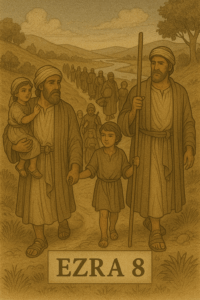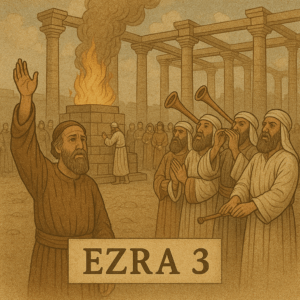Beyond rituals: Unveiling the heart of Leviticus 19.
Leviticus 19 is often referred to as the “Holiness Code” for a reason. It gets into various aspects of living a holy life, but its focus extends far beyond mere rituals. This chapter lays out a foundation for social justice, ethical behavior, and compassion, offering insights applicable even in the modern world.
Living holy: A call for righteousness and compassion.
The chapter opens with a powerful call to holiness, urging the Israelites to be holy “for I the Lord your God am holy.” This holiness is not merely about ritual purity; it encompasses ethical conduct, fairness in dealings, and demonstrating compassion towards others.
A blueprint for social justice: Protecting the vulnerable.
Leviticus 19 outlines specific regulations promoting social justice. It prohibits exploiting the poor or the foreigner, advocating for fair wages and treatment for laborers. The chapter also emphasizes protecting the vulnerable, including the blind, deaf, and strangers residing within the community.
The golden rule: A universal message of respect.
Perhaps the most famous verse in Leviticus 19 reads: “You shall love your neighbor as yourself” (v. 18). This principle, often referred to as the Golden Rule, transcends specific laws and underscores the importance of treating others with respect and empathy, as we would want to be treated ourselves.
Understanding the context: Historical and cultural influences.
Exploring Leviticus 19 within its historical context is crucial. These guidelines aimed to create a just and ethical society for the Israelites, setting them apart from surrounding cultures.
Beyond the literal: Unveiling deeper meanings
Modern interpretations of Leviticus 19 emphasize its long standing message. It’s not just a set of ancient laws; it’s a call to us to living a meaningful life based on ethical principles, compassion, and social responsibility.
The themes of Leviticus 19 hold immense relevance in the modern world:
I. Promoting social justice: Advocating for fair treatment and equal opportunities for all members of society.
II. Ethical conduct: Upholding principles of honesty, integrity, and fairness in our interactions with others.
III. Compassion and respect: Cultivating empathy and treating others with dignity and kindness.
Conclusion.
Leviticus 19 offers a message that transcends time and culture. By exploring its historical context, interpretations, and underlying themes, we gain valuable insights for navigating our own lives and fostering a more just and compassionate world.




